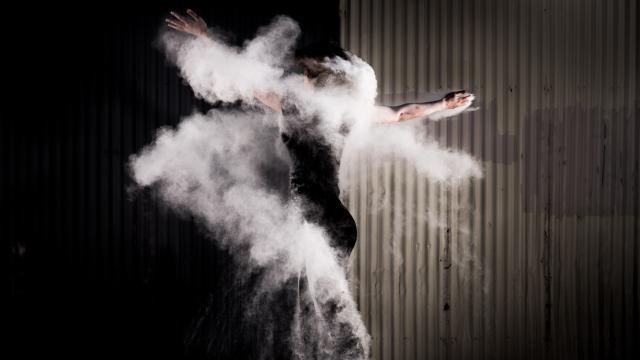Two women with cancer – one already deceased – lost lawsuits against talcum powder makers recently after a judge determined that they hadn’t proved the powder caused their cancer. So does the stuff cause cancer or doesn’t it? Turns out that’s a hard question to answer.
Photo by Chris Chabot.
What’s in Talcum Powder, Anyway?
The main ingredient in talcum powder is talc, a soft white rock. It’s been ground up and bottled. Baby powder was traditionally talcum powder, although due to health concerns, what’s sold as baby powder is now often made of cornstarch.
Breathing talc is bad for you, especially because it can naturally contain asbestos fibres. Asbestos, on its own, is recognised as carcinogenic. But talc sold in stores today does not contain any detectable levels of asbestos.
But what about talc used topically? Many people dust baby powder onto pads, or otherwise use it in the genital area. The women in the lawsuits say using the powder this way caused their ovarian cancer.
Talc’s health risks are more of an issue for workers who breathe it in all day long than for people (even babies) who use what the industry calls “cosmetic talc”. There hasn’t been a clear link between cosmetic talc and any health problems, but is that because the link doesn’t exist or because we haven’t looked hard enough?
What Does the Science Say?
Unfortunately, there’s no clear science linking talc to ovarian cancer – but there isn’t enough data to be reassuring either. It’s probably fine.
Several studies have found no link between consumer use of talc and ovarian (or any other) cancer. Some case-control studies, which compare people with ovarian cancer to people who don’t have cancer, have highlighted talc use as something more common among the people with cancer. But these studies require people to remember whether they used talc, and how much and how often, throughout their life. If you get cancer, you might be more likely to remember and question your talc use. So these types of studies aren’t as reliable.
The American Cancer Society notes that research findings have been mixed, with the more reliable studies turning up no link. They conclude: “For any individual woman, if there is an increased risk, the overall increase is likely to very be small. Still, talc is widely used in many products, so it is important to determine if the increased risk is real. Research in this area continues.”
The International Agency for Research on Cancer classifies talc use in the perineal area (skin near the genitals) as “possibly carcinogenic”, the same category as aloe vera, welding fumes and petrol. They write that there is “limited” evidence linking perineal talc use to cancer in humans. In other words, maybe.
The National Institutes of Health decided not to review cosmetic talc for carcinogenicity, because there just aren’t enough good studies to work from. “It has become evident that the literature on both forms of talc [with and without asbestos], with a few exceptions, provides an inadequate characterization of the actual materials under study to enable one to reach definitive conclusions concerning the specific substances responsible for the range of adverse health outcomes reported.”
If you’ve used talc in the past, it’s unlikely you harmed yourself. (Even if there is a risk, as the American Cancer Society noted, it would have to be a minuscule one.) But if you’d prefer to avoid it going forward, you can switch to a cornstarch-based powder. So far topical cornstarch appears to be safe.

Comments